BI–RADS stands for Breast Imaging Reporting and Data System and was established by the American College of Radiology.
BI-RADS is a system that was developed by radiologists for reporting mammogram results using a common language. The radiologist assigns a single digit BI-RADS score (ranging from 0 to 5) when the report of your mammogram is created.
What does BI-RADS 0 mean? BI-RADS 0 identifies a mammogram study that is not yet complete. You need to make sure that further evaluation is completed, perhaps extra mammography views or an ultrasound. Further information is needed to make a final assessment (codes 1 to 5).
What does BI-RADS 1 mean? BI-RADS 1 means that the mammogram was negative (ie, no cancer) and that you should continue your routine screening.
What does BI-RADS 2 mean? BI-RADS 2 also means that your mammogram was normal (i.e. no cancer), but other findings (such as cysts) are described in the report. You should continue your routine screening.
What does BI-RADS 3 mean? BI-RADS 3 means that your mammogram is probably normal but a repeat mammogram should be completed in 6 months. The chance of breast cancer is approximately 2% in this category. You should make sure that these follow-up mammograms are completed as requested.
What does BI-RADS 4 mean? BI-RADS 4 means that the findings on your mammogram are suspicious and that there is approximately a 23% to 34% chance that this is breast cancer. You will need a biopsy to get a small tissue sample to make a diagnosis. Talk to your doctors about any questions.
What is a biopsy? Biopsy is done to obtain a piece of the breast tissue to determine whether there is cancer. The biopsy may be done using a needle technique (a “needle biopsy”) or may require a surgical operation (a “surgical biopsy”). When a needle biopsy is an option, it is usually preferred. Needle biopsies are performed at the Diagnostic Imaging Services Women’s & Advanced Imaging Center in Metairie.
What does BI-RADS 5 mean? BI-RADS 5 means that your mammogram results are highly suspicious with a 95% chance of breast cancer. You will need to have a biopsy for diagnosis. Talk to your doctors about what course of action to take.
What does BI-RADS 6 mean? BI-RADS 6 means that you have already been diagnosed with breast cancer. Discuss your treatment plan with your doctors.
Why do I need to know my BI-RADS score? Knowing your BI-RADS number can help to make sure that you get proper follow-up after your mammogram. It is a good thing for you to know that score so you can keep track, along with your physician, of what you need to do and actively participate in your medical care.
Breast density
Mammogram reports also include an assessment of your breasts’ density. Dense breasts have less fatty tissue and more non-fatty tissue compared to breasts that aren’t dense. Dense breasts:
- can be up to 6 times more likely to develop cancer
- can make it harder for mammograms to detect breast cancer; breast cancers (which look white like breast gland tissue) are easier to see on a mammogram when they’re surrounded by fatty tissue (which looks dark)
BI-RADS classifies breast density into four groups:
- Mostly fatty: The breasts are made up of mostly fat and contain little fibrous and glandular tissue. This means the mammogram would likely show anything that was abnormal.
- Scattered density: The breasts have quite a bit of fat, but there are a few areas of fibrous and glandular tissue.
- Consistent density: The breasts have many areas of fibrous and glandular tissue that are evenly distributed through the breasts. This can make it hard to see small masses in the breast.
- Extremely dense: The breasts have a lot of fibrous and glandular tissue. This may make it hard to see a cancer on a mammogram because the cancer can blend in with the normal tissue.
Mammography is performed at our Capitol Imaging Services affiliate, Diagnostic Imaging Services, with locations in Covington, Marrero, Metairie and Slidell, LA. These facilities also offer the 3D mammography option.
Diagnostic Imaging Services can be contacted directly at 504-883-5999 or 985-641-2390 to schedule a mammogram. Or, click here to send us a secure email requesting appointment assistance.


